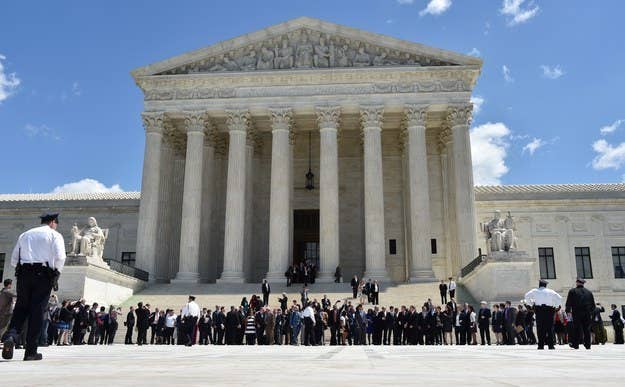
WASHINGTON — The Supreme Court tossed out the "threats" conviction of Anthony Elonis for postings he made on Facebook, leaving several key questions in the closely watched case unanswered.
The court, in an opinion by Chief Justice John Roberts, held that the federal criminal law banning "threats" in interstate communication requires more than proof that a "reasonable person" would have viewed the communication as a threat for a conviction, known as a negligence standard.
The decision avoided constitutional questions about whether the First Amendment barred a conviction under the threats statute if only negligence was required for such a conviction.
Elonis had posted a series of posts on Facebook, having adopted an "on-line persona" of "Tone Dougie," posting what Roberts characterized as "crude, degrading, and violent material about his soon-to-be ex-wife."
The government had argued that if a reasonable person understood those as threats it should suffice for a conviction under the law, but Roberts, writing for the court, held that the law requires more. Specifically, he wrote that whatever greater mental requirement is required "must therefore apply to the fact that the communication contains a threat."
The court did not, however, resolve what that greater mental requirement was — a move that irked Justices Samuel Alito and Clarence Thomas. Alito, at one point, wrote that the decision "is certain to cause confusion and serious problems."
Alito wrote that the standard should be that a conviction is possible if the person "consciously disregards the risk that the communication transmitted will be interpreted as a true threat," known as a recklessness standard.
Roberts, however, countered that the court resolved the issue before it — that the negligence standard is insufficient — and that other matters would have to be resolved at other times. He noted that everyone agrees that a conviction is possible if the person's purpose was to make a threat or if the person had knowledge it would be viewed as a threat. The unanswered question, Roberts acknowledged, was whether recklessness would be enough.
The decision reversed the lower court's decision upholding Elonis's conviction and sent the case back to the lower courts.
John Elwood, the Vinson & Elkins partner who represented Anthony Elonis, responded to Monday's ruling in a statement, saying, "We're pleased that the Supreme Court saw this case for what it was: An unprecedented criminal conviction for a 'crime' of pure speech based on only a showing of negligence. We are confident Mr. Elonis will be vindicated on remand."
Asked about the importance of the case for speech on the internet — given the court's avoidance of a decision about whether recklessness would be sufficient for a conviction and whether the First Amendment barred a negligence-based conviction — Elwood told BuzzFeed News, "As Justice Thomas pointed out, before today, 9 of 11 circuits that had weighed in used a negligence standard for criminalizing speech. I think it’s important that that view was roundly rejected (by an 8-1 vote)."
"Based on what the majority opinion said even as a matter of statutory interpretation, I think one would be hard-pressed to say that negligence would fly as a constitutional matter," he wrote of the First Amendment question that went unanswered.
"I am sorry the Court didn’t provide more guidance on the recklessness versus knowledge versus purpose question. But the fact that recklessness only came up at argument—neither party saw the need to brief it ('reckless' doesn’t even appear in the government’s brief other than in a quote of one of Mr. Elonis’ posts)—undercuts the idea that that is really an obvious basis for penalizing speech," he wrote regarding the recklessness issue.
